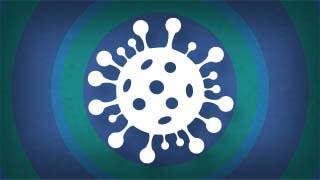Updated on
What did the project achieve?
During the COVID-19 pandemic, hundreds of families across the UK received the devastating news that their child had a brain tumour. At the same time, major disruptions to healthcare services may have led to delays in their assessment and treatment. To better understand this impact, Dr Ibrahim Jalloh of Addenbrooke’s Hospital in Cambridge and Professor Rachel Isba of Lancaster University led a study to explore how the pandemic affected the diagnosis, treatment, outcomes and experiences of children and young people with brain tumours and their families.
“This study provided an invaluable space for children, young people, and their caregivers to reflect and share their experiences of navigating a life-changing diagnosis during an unprecedented global crisis,” says Dr Jalloh. “We found that while the health outcomes for children with brain tumours may not have been significantly affected by the pandemic, the emotional and practical toll on their lives – and those of their families – was profound, going well beyond the challenges typically associated with this diagnosis.”
In the first part of the study, the researchers carried out nearly 50 in-depth interviews with children, young people and their families affected by a brain tumour diagnosis during the pandemic. Five key themes emerged: 1) challenges getting into the healthcare system; 2) coping with pandemic restrictions as a family; 3) complexities of building a supportive healthcare team; 4) limited access to practical and emotional support for caregivers in hospital and 5) ongoing difficulties experienced by families in the community.
In addition, the researchers analysed anonymous data from children under 16 diagnosed at 19 specialist cancer centres across England, and also reviewed detailed case notes from three large centres. This part of the study was designed to explore whether the pandemic altered patterns of brain tumour diagnosis, treatment or outcomes, compared to the years immediately beforehand.
“Despite challenges in the system and a constant rate of new brain tumour diagnoses in children and young people, we found that the time to diagnosis and clinical outcomes remained broadly consistent with the years before the pandemic,” says Dr Jalloh.
Beyond COVID-19, the findings serve as a model for how pandemics or similar disruptions can affect specialist healthcare services. Insights from this work have generated recommendations for how to manage cancer care and other complex services for children during future periods of disruption.
“Our findings offer practical insights into how healthcare services could be improved during future disruptions, shedding light on the challenges faced by families during the pandemic, but also providing suggestions for improving healthcare services to ensure a more comprehensive and effective response in future,” says Dr Jalloh.
This research was completed on
How are children’s lives affected now?
Around 500 children and young people under the age of 16 are diagnosed with a brain tumour every year in the UK.1 And sadly, these cancers are the most common cause of cancer death in children.
“Finding out that your child has a brain tumour is potentially devastating,” says Dr Jalloh. “And it’s also possible that disruption to health services during the COVID-19 pandemic has made this distressing time even more challenging for children and their families.”
Unfortunately, there is growing evidence to suggest that some of those accessing health services during the first wave of the pandemic may have done so later than usual – potentially delaying important assessment and treatment.
“A delay in diagnosis could make treatment more complex and reduce the likelihood of successful outcomes for a child with a brain tumour,” says Dr Jalloh. “We need to explore what has happened to those children and their families who received their diagnosis during the pandemic.”
How could this research help?
“We want to understand the impact of the pandemic on the diagnosis, treatment, outcomes and experiences of children and young people with brain tumours, and their families,” says Professor Isba.
The researchers will analyse anonymised data from children aged under 16 who were diagnosed with a brain tumour during the first year of the COVID-19 pandemic at all 19 UK specialist centres. They will then compare these results with information from children who were diagnosed during the previous five years.
“We will explore whether service disruption during the pandemic affected how long it took to receive a diagnosis and start treatment – and on children’s outcomes,” says Dr Jalloh.
The team will also interview up to 30 children and their carers about their experiences. Importantly, the participants will help design this part of the study, making sure that their voices are heard.
Our findings should lead to recommendations for managing cancer and other specialist healthcare services during future periods of service disruption. Some changes arising during the pandemic, such as remote consultations, are likely to continue – and this is an opportunity to find out how patients feel about them.
- Cancer Research UK, Brain, other CNS and other intracranial tumours incidence statistics: https://www.cancerresearchuk.org/health-professional/cancer-statistics/statistics-by-cancer-type/brain-other-cns-and-intracranial-tumours/incidence#heading-One [website accessed 11th February 2021]
Research table
Project details
| Project Leader | Dr Ibrahim Jalloh, BA MBBS MA PhD FRCS |
| Location | Department of Neurosurgery, Addenbrooke’s Hospital, Cambridge University Hospitals NHS Foundation Trust |
| Project Team |
Professor Rachel E Isba, BA BM BCh MA MPH PhD FFPH
Dr G Amos A Burke, MA MBChB PhD FRCPCH FRCP Dr Donald C Macarthur, BSc MBChB DM FRCS Dr Amanda Stranks, BSc DPhil MPhil Dr Elizabeth Brewster, PhD SFHEA |
| Other Locations |
Lancaster Medical School, Faculty of Health and Medicine, Lancaster University
Department of Paediatric Haematology and Oncology, Addenbrooke’s Hospital, Cambridge University Hospitals NHS Foundation Trust Children’s Brain Tumour Research Centre, University of Nottingham NIHR Cambridge Biomedical Research Centre, University of Cambridge |
| Grant Awarded | |
| Grant Amount | £142,964 |
| Start Date | |
| End Date | |
| Duration | 24 months |
| Grant Code (GN number) | GN2904 |

